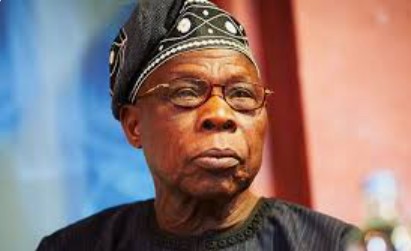Former President Olusegun Obasanjo has slammed the recent invitation the Nigerian National Petroleum Corporation Limited extended to him, describing it as disrespectful.
The NNPCL had, through its spokesperson, Olufemi Soneye, invited the former president for a tour of the Port Harcourt and Warri refineries.
The corporation’s invitation followed an interview on Channels Television on Thursday, during which the ex-president recounted failed efforts to privatise oil plants in the country.
Obasanjo expressed frustration over the mismanagement of refineries, noting that despite significant expenditure since 2007, no results had been achieved.
He explained that his successor, Musa Yar’Adua, rejected a $750m offer from the Chairman of the Dangote Group, Aliko Dangote, to manage the Port Harcourt and Kaduna refineries.
According to Obasanjo, the NNPCL was aware of its limitations in managing the nation’s refineries but informed Yar’Adua that the corporation could operate them, leading to the rejection of Dangote’s offer.
He said, “When I was president, I wanted to do something about the three refineries we have: Port Harcourt, Warri, and Kaduna. Aliko got a team together after I asked Shell to come and run it for us. And Shell said they wouldn’t. I said, ‘Please come and take equity’, they said no. I said, ‘Okay, don’t take equity, come and run it’, they said no.
“Aliko got a team together and they paid $750m to take part in PPP (Public–Private Partnership) in running the refineries. My successor refunded their money, and I went to my successor; I told him what transpired; he said NNPC said they wanted the refinery and they could run it, and I said, ‘But you know they cannot run it.”
Obasanjo added, “But I was told not too long ago that since that time, more than $2bn had been squandered on the refineries, and they still would not work.”
He stressed that if a company like Shell rejected his offer to manage the refineries based on their reasons, he would believe the company.
The former president expressed confidence in Dangote’s ability to manage his privately owned refinery effectively, contrasting it with the government’s inefficiency.




